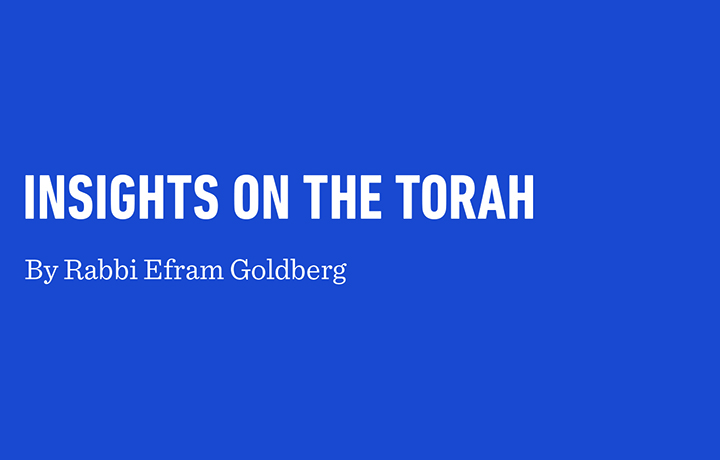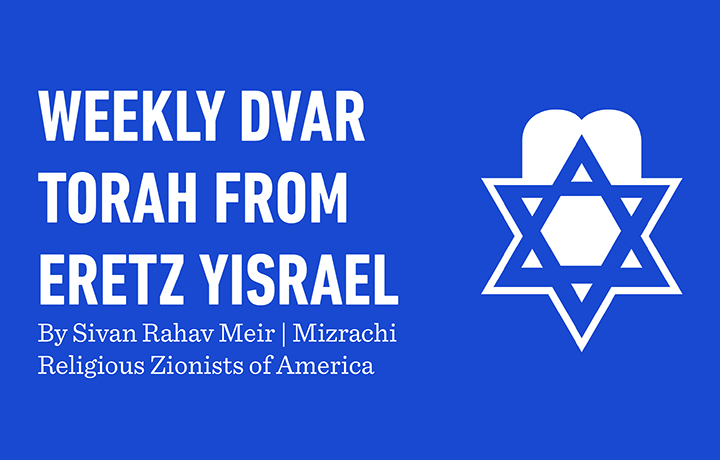The Real You: Overcoming Imposter Syndrome This Elul
By Rabbi Efrem Goldberg
Have you ever felt like a fraud, that you’re just making things up as you go, and one day the world will discover you’re not as capable as they thought? This feeling can pervade our professional lives, our family lives, and our religious lives—or all three.
I’ll admit something personal. For several years after I graduated, I had a recurring nightmare that the registrar’s office called to demand my diploma back because I hadn’t really earned it. Even now, after more than twenty years of serving as a rav, I catch myself thinking: “Who am I to give this derashah/officiate at this wedding/answer that halachic question/give that shiur?”
If you have ever felt this way, you’re not alone. Studies show that as many as 70% of people experience what Psychologists Pauline Clance and Suzanne Imes coined in 1978 as “imposter syndrome.” It’s the conviction that your accomplishments aren’t truly earned, that all your success came from luck, timing, or fooling people into thinking you’re competent. It’s a feeling that on the outside you’re faking it, while on the inside you’re haunted by a gnawing feeling of unworthiness. Doctors feel it. Lawyers feel it. Parents feel it. Rabbis feel it.
And our greatest leaders felt it too.
When Aharon was called to serve in the Mishkan on its opening day, the Torah describes him hesitating. Rashi explains that Aharon felt unworthy, like a fraud. Moshe (who once resisted his own calling by insisting he wasn’t a public speaker or a leader), reassured him: “Why are you ashamed? You were chosen for this.” That moment reframes imposter syndrome. It is not weakness—it’s part of the human experience, even for the greatest among us.
We have begun the month of Elul, the countdown to Rosh Hashanah and the start of a new year, a new beginning. The Talmud teaches that Rosh Hashanah not only marks the creation of humanity, but also the day Yosef HaTzaddik was released from prison. Why highlight that event? Because Yosef’s liberation mirrors the opportunity given to each of us. New beginnings—a fresh start—begin with being freed like Yosef, freed from prisons of self-doubt and self-imposed limitations.
That’s why the Navi Amos calls us “Shearis Yosef,” the remnant of Yosef. This time of year, we too are invited to walk out of our prisons and prepare for our new beginning.
A couple of years ago, I met with a tzaddik in Beit Shemesh, Rav Avraham Zvi Kluger, who gave me a total paradigm shift in how to experience this time of year. He explained that Elul and Rosh Hashanah are not about our failures, but about our potential. Hashem sees not only where we fall short, but He knows the best version of ourselves, the moments when we rise above, when we’re patient, loving, disciplined, and strong. He knows that this is our true self: the real us. The slip-ups and shortcomings, the failures, are the aberrations, not the other way around.
We mistakenly think the real us is the one who loses his cool with his spouse and kids, the one who looks at the wrong things when no one is looking, or indulges in the urge to say the wrong things to curry favor with the listener. We mistakenly think that because we occasionally show up and get things right, despite our shortcomings, that means we are imposters.
That is false! The truth is that when we are able to stay calm and patient with those we love, and when we have the discipline to do the right thing despite being tempted, that is who we really are. That is our true selves.
When the shofar sounds each morning of this month and on Rosh Hashanah, it doesn’t call us to wallow in self-pity and guilt. The Rambam writes that it awakens us to look into our souls, to remember who we really are and what we are capable of accomplishing. Rosh Hashanah’s teshuvah is not about confession; that comes on Yom Kippur. Rosh Hashanah’s teshuvah is about recognition: remembering our best selves and realigning with them.
As Rav Kook wrote in Oros HaTeshuvah, “The primary role of teshuvah is to return to one’s true self, to the root of one’s soul.”
We are defined by our strengths, not our weaknesses; we are our best moments, not our worst. While we have to take ownership and responsibility for our failures, we deserve the success and achievements we have earned.
In 1977, Laura Schultz, 63, was in the kitchen of her home in Tallahassee, Florida, when she heard her 6-year-old grandson screaming from the driveway. Schultz ran to the door to find her grandson pinned beneath the rear tire of a full-sized Buick. Giving no consideration to limitations or barriers, she ran to the car, used one hand to lift the rear of the vehicle, and used the other hand to drag her grandson to safety.
For years, Schultz refused to speak about the incident. After finally agreeing to an interview with performance coach Dr. Charles Garfield, Mrs. Schultz explained why she had remained silent about the miracle. She revealed that the incident had scared her and reminded her that she had wasted most of her life living far below her true potential. If she had that kind of strength inside her all along, why hadn’t she utilized it more often or more fully?
With a little coaching from Garfield, Schultz returned to college, earned her degree, and went on, at nearly 70 years of age, to fulfill her lifelong dream of becoming a college professor.
Like Schultz, we often dismiss our best moments as exceptions, flukes, or lucky breaks. But those moments are the real us. They reveal what Hashem already knows: that we carry extraordinary potential. Don’t ignore the strength that lies dormant inside you. Your best moment as a mother or father, as a husband or wife, as an eved Hashem—that is the real you. Believe it, embrace it, nurture it, repeat it, and grow it.
Spend Elul overcoming your imposter syndrome and seeing and believing in the real you. This year, instead of just limiting our challenges, let’s challenge our limits. n
Rabbi Efrem Goldberg is the Senior Rabbi of the Boca Raton Synagogue (BRS), a rapidly-growing congregation of over 850 families and over 1000 children in Boca Raton, Florida.














